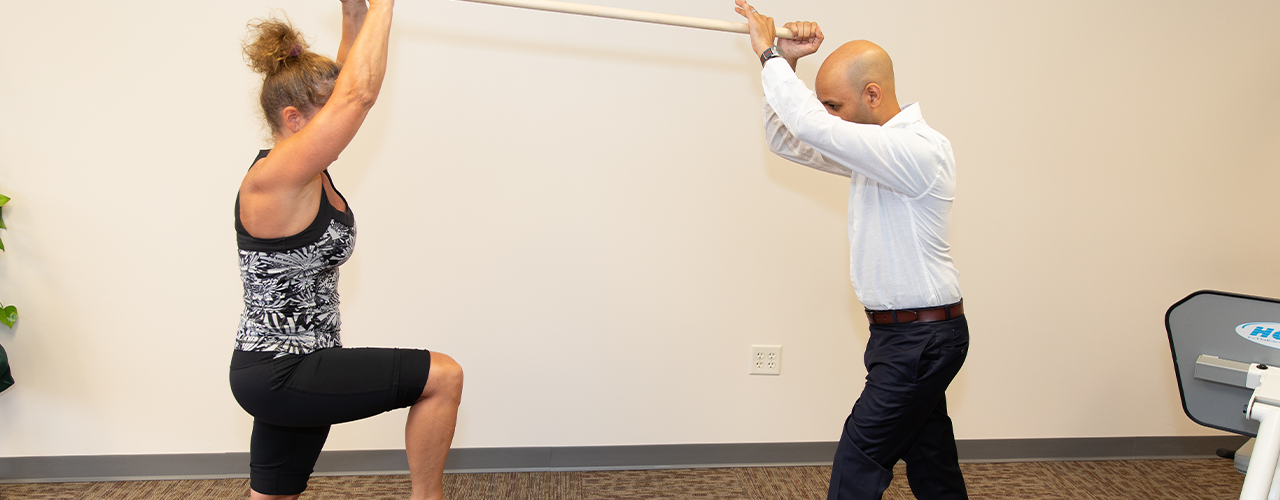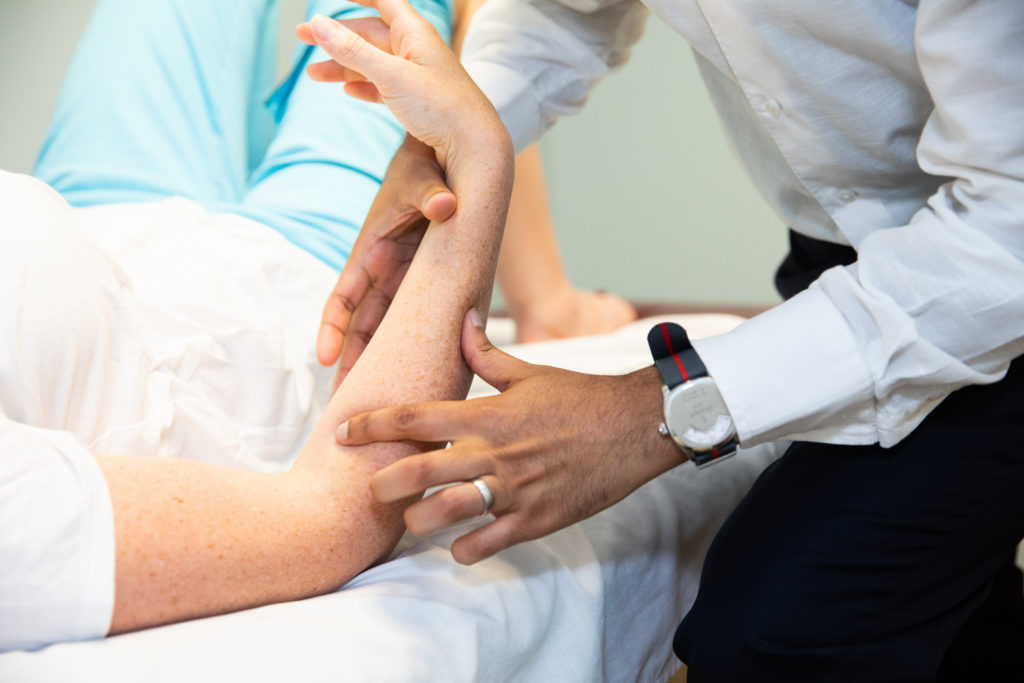Ready to Feel Steady Again? Find Your Balance with Physical Therapy
There is Hope for Balance Once Again – With Physical Therapy
There are many reasons why this kind of condition may occur, and it can cause both physical and mental limitations in your daily life. At Health Source Physical Therapy, we can manage your symptoms and in many cases, we can help relieve your condition altogether.
Have you noticed pain in your hips, knees, or other joints that make it difficult for you to walk? Do you find yourself reaching out for walls, railings, or other objects to balance yourself? Is your balance simply not quite what it used to be?
These are all indications of a balance or gait disorder. Underlying musculoskeletal and neurological disorders can cause or aggravate a balance or gait problem. Fortunately, physical therapy in Portland can help.
To find out more about how our balance and gait disorders services can benefit you, contact our Portland physical therapy office today.
How will physical therapy help with my balance or gait disorder?
Physical therapy is the best option for balance and gait disorders. Our Portland physical therapists can provide you with the best techniques for improving your balance and ability to walk.
When you arrive for your initial consultation, our physical therapist will conduct a comprehensive physical evaluation to examine your balance, gait, stance, medical history, and symptoms, before creating a personalized treatment plan made for your specific needs. This treatment plan may include:
Vestibular rehabilitation
This physical therapy treatment works to improve your vision, nerves, muscles, and the vestibular system as a whole, in order to maintain a steady balance. If you are suffering from BPPV, our Portland physical therapists will provide you with specific exercises that will move the calcium debris to the correct parts of your ear.
Gait retraining exercises
Sometimes, abnormalities in gait can be corrected through “retraining” where you learn proper techniques.
Strengthening exercises
Your evaluation will help determine what problem areas in your body may need help. Our physical therapist will provide you with strengthening exercises that will build up your muscles, thus making it much easier for you to move around and reduce your risk of injury.
Stretches
Stretching will help improve your flexibility and your range of motion. This will give you more control and quicker reactions with your movements, also reducing your risk of injury. It will also keep your muscles from becoming too tight and stiff.
The differences between balance and gait disorder
Balance and gait disorders are closely related, but they do have some distinct differences:
Balance disorders
Balance disorders are both physical and mental, as your brain may think you are moving, even when you are not. Changes to your joint strength, mobility, and ability to sense where your joints are in space (proprioception), all have physical consequences on your balance.
Gait disorders
Gait disorders can cause abnormal movements in the way you walk and run, and these can become exaggerated with age. According to Move Forward Physical Therapy, gait disorders account for 17 percent of senior falls.
What can I do?
Balance and gait disorders belong to a family of functional problems that interfere with your positional awareness, your normal means of walking or running, and your ability to keep yourself upright.
What caused my balance or gait disorder?
For balance disorders, many are related to issues in the vestibular system, which is a delicate collection of fluid-filled chambers and sensory nerves, located in the inner ear, and thousands of nerve receptors in the joints throughout your body.
The vestibular system is responsible for your sense of position, also known as “proprioception.” There can be many causes of balance and gait disorders, as they can develop from many different underlying conditions.
Some common vestibular conditions resulting in balance disorders include:
Benign paroxysmal positional vertigo (BPPV)
This occurs when calcium debris breaks off in the inner ear, causing issues with balance.
Neurological issues
This may include Parkinson’s disease, brain injury, or stroke. Anything that affects your neurological system can also impact your balance.
Injury or ailment
Even if your brain and nervous system are working in harmony with one another, a sudden injury, disease, or other ailment causing muscle weakness can interfere with your balance and make it difficult to keep yourself upright.
Get started today!
Are you looking to get back on your feet? Contact Health Source Physical Therapy today at Portland, MI Center! We’ll help you find the balance you’re looking for after just a few sessions.




